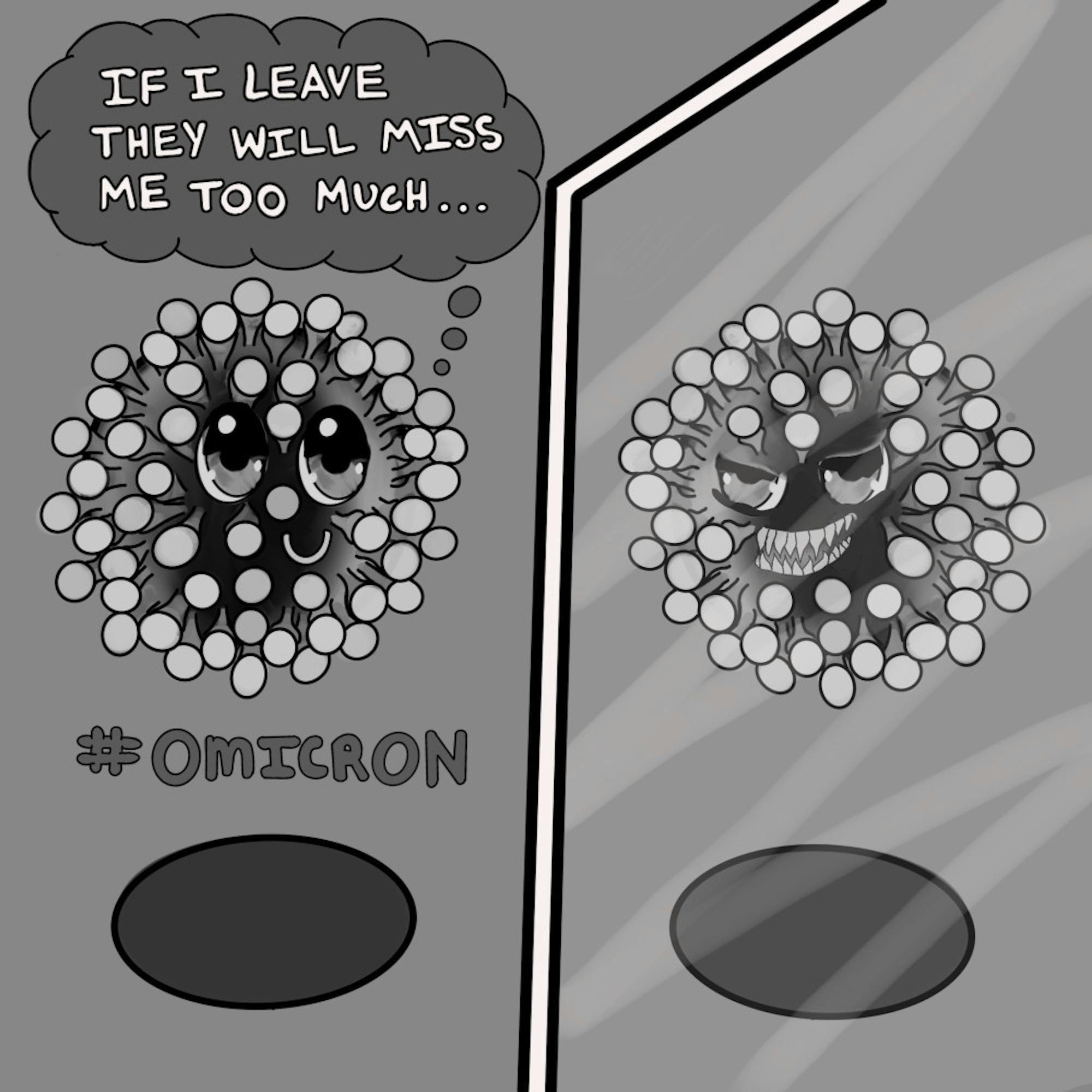It was only a matter of time before researchers discovered another mutation of COVID-19. On Nov. 26, the World Health Organization reported omicron as a “variant of concern,” triggering the adoption of travel bans by various governments and a wave of panic that has begun affecting populations around the world. Still, many questions remain regarding what makes this variant different, making much of the panic we see, fueled by rumors and misinformation, unproductive.
To set the record straight, there are still many unknowns about the omicron variant and the significance of this mutation. Currently, researchers are trying to determine some key characteristics of this variant: its transmissibility, its ability to evade immune responses and its severity.
For many scientists, the omicron variant is the “weirdest creature” they’ve seen, with around 30 mutations that code for the spike protein that allows it to infect cells. These mutations raise concerns that the virus might be more easily transmitted than the delta variant. However, it remains unclear how multiple mutations will interact and affect the overall threat that omicron poses.
Additionally, it is uncertain how effective the current vaccines will be against omicron compared to other variants. It is unlikely that this variant completely overcomes the vaccinated immune response. However, Florian Krammer, a virologist at the Icahn School of Medicine at Mount Sinai, explains that if this variant has a high degree of immune evasiveness, it would “not bode well for vaccine-induced immunity.” Vaccine makers may have to revise their formulas or concoct an entirely new vaccine, which would be a setback in the world’s efforts to emerge from this pandemic.
One of the overarching questions that many people are asking about omicron is whether it is as bad as it appears at first glance. President Joe Biden has reassured the United States that the new variant is “cause for concern, not a cause for panic.” On a hopeful note, no deaths have been linked to omicron, according to WHO reports on Dec. 3, and symptoms appear to be milder. Nevertheless, every day that passes marks another day in which COVID-19 changes shape and continues to take a toll.
Because the virus was discovered in South Africa, many countries are restricting flights to and from South Africa. This will have dire economic repercussions for the country and might even discourage other countries from researching and looking for new variants. South African scientists should be praised for their work in finding the new omicron variant, not punished. The use of terminology like the “South Africa variant” is harmful and casts blame on South Africa, a leading country in genome sequencing. The targeted labels for the omicron variant are reminiscent of the kind of racist and divisive language used against Asian individuals when COVID-19 first emerged. The racialization of diseases and pandemics is extremely dangerous as we have seen with the rise in anti-Asian hate crimes amid COVID-19.
The emergence of the omicron variant is particularly concerning for the international student population at Tufts and throughout the United States since travel restrictions might make it difficult for students to go back to their home countries over winter break. It is not just a matter of concern in terms of coming back to the United States for the second semester, but also in leaving the United States in the first place.
After Thanksgiving break, news about new variants and the potential effects should remind us all that the pandemic is not yet over. Many of us saw family and friends over the break, which means that there has been even more exposure to many different people, posing potential COVID-19 risks. The prospect of returning to the early pandemic lifestyle as a result of omicron reminds us to wear our masks properly, especially in enclosed, indoor spaces, and to receive our booster shots in order to keep our community safe. It should also serve as a reminder to respect those around us and to stay cognizant about the effects of our words and actions.






